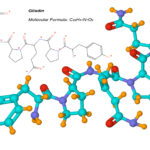By Mark Nowak
October is National Depression Awareness Month, and this year the focus is on depression in children and adolescents. A serious mental illness, depression can affect anyone, regardless of age. It is also especially common in children and adolescents.
According to the National Institute of Mental Health, about 2.8% of children and 5.8% of adolescents experience major depressive disorder at some point in their lifetime. This means that millions of young people are struggling with depression. Depression can have a significant impact on a child’s life. It can interfere with their schoolwork, relationships, and overall well-being. In some cases, it can even lead to suicide.
The good news is that depression is treatable. With the right help, most children and adolescents can recover from depression, and go on to live healthy and happy lives.
What are the signs of depression in children and adolescents?
Depression can cause a wide range of symptoms, including sadness or irritability, a loss of interest in activities previously enjoyed, changes in appetite or sleep habits, difficulty concentrating or making decisions, fatigue or loss of energy, feelings of worthlessness or guilt, and thoughts of death or suicide.
“The type of treatment for depression can depend on the severity of the symptoms,” says Carol Winkler, pediatric psychiatric nurse practitioner for BryLin Hospital. “In some cases, therapy alone may be enough. In other cases, a combination of medication and therapy may be needed. In more severe cases, crisis stabilization in a safe and supportive environment, like BryLin Hospital, may be necessary.”
How can I help a child or adolescent who is depressed?
If you are concerned that your child may be depressed, the most important thing you can do is talk to them. Let them know that you are there for them and that you want to help. “Let them know that depression is a real illness, just like diabetes or heart disease. Tell them it is nothing to be ashamed of, and that it’s okay to be not okay,” says Winkler.
If your child is in crisis, or displays thoughts of self-harm or suicide, seek help immediately. Untreated depression is the number one cause of suicide, and suicide is the second leading cause of death among young people ages 10 to 24. For expedited access to evidence-based, short-term crisis stabilization, speak with a mental health professional by calling the admissions department at BryLin Hospital. Call 716-886-8200 ext. 2264, or visit www.brylin.com for more information. BryLin offers crisis care for children, adolescents, and adults in need of a safe, supportive, and structured environment.
Depression is a serious illness that is treatable. If you or someone you know is struggling with depression, please reach out for help. There is no shame in seeking help, and it could make all the difference.
Mark Nowak is the Marketing Director of BryLin Hospital.












